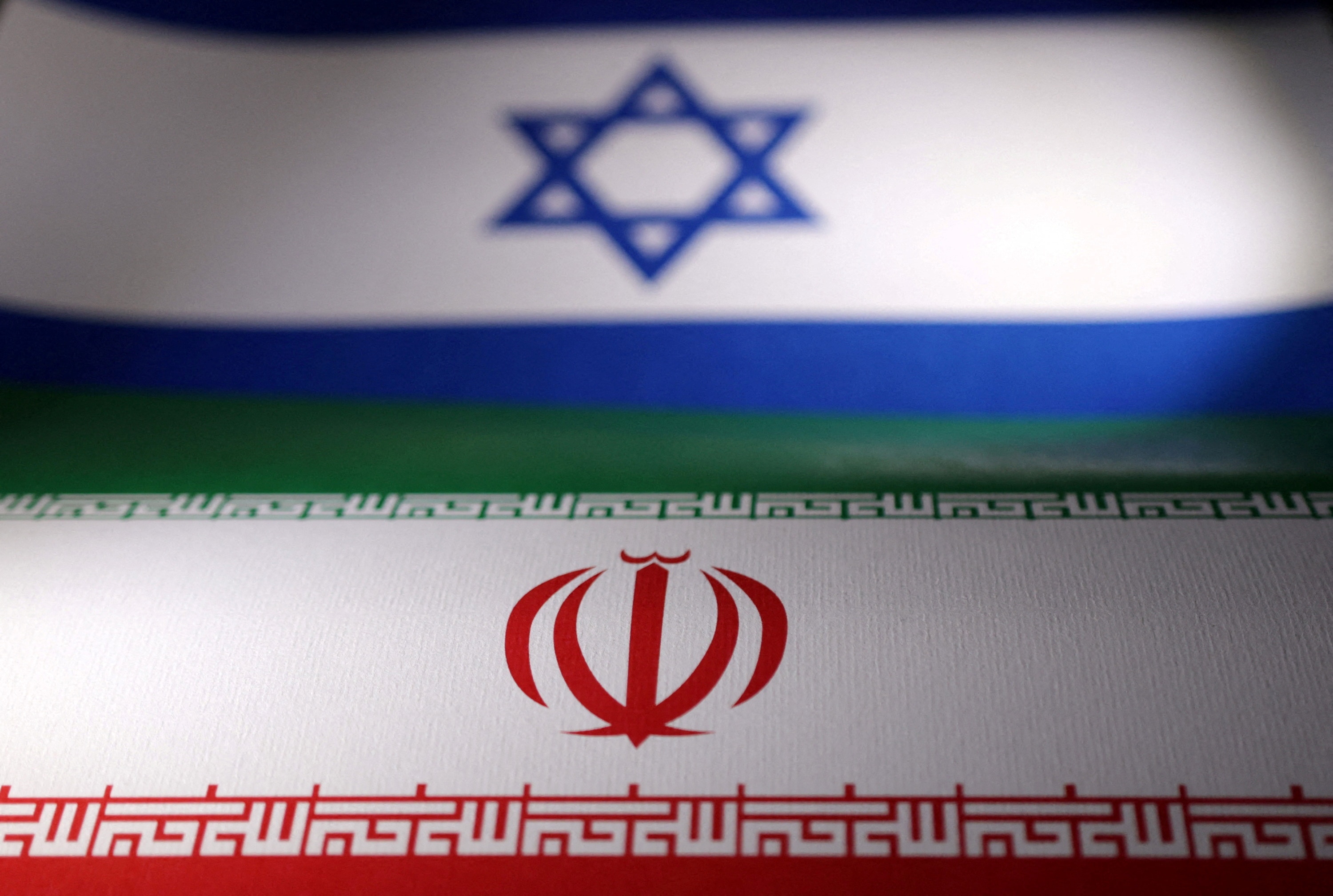Israel and Iran have stopped firing, but they have moved closer to all-out war
analysis
EBy Eric Tlozek
Topic:Unrest, Conflict and War

The tone of agreement between Israel and Iran now might seem rather strange, but is for tactical reasons.
This round of fighting between Israel and Iran might be over, but the rules have changed and things are increasingly dangerous.
"One thing is clear: Israel and Iran came closer than ever last night to the brink of direct war," wrote Danny Citrinowicz, a researcher at Israel's Institute for National Security Studies.
Considering they have traded ballistic missile fire over the past month, the tone of agreement between Israel and Iran now might seem rather strange, but is for temporary, tactical reasons.
Both have signalled a mutual interest in stopping further escalation, but prevailing conditions could mean that more fighting is likely, if not inevitable.
Before Israel launched its strikes – purportedly on missile manufacturing and launch sites in three provinces — Iran had been implying that it would consider anything less than an attack on its oil or nuclear facilities not to be worthy of retaliation.
It gave the Islamic Republic a path to save face and avoid further attacks, and one it appears to be taking for now.
"Which signals two things; one is that the attacks were not as severe as some might have feared, and two, that whatever the extend of the attacks, they feel like they can stomach it," Iran analyst Negar Mortazavi told the BBC.
Israel also says things are over.
Its strikes undoubtedly caused more damage than Iran is admitting, just as Iran likely caused greater damage to Israeli military and intelligence sites in its October 1 missile barrage than Israel admitted at the time.
By heeding United States requests not to hit oil or nuclear sites, Israel appears to have chosen to avoid an attack that triggered an Iranian response.
However, the new status quo is that provocations now have to be answered by tit-for-tat missile strikes, a highly dangerous shift to major, overt attacks that contrasts with the "shadow war" that prevailed between Israel and Iran before Israel struck an Iranian diplomatic compound in Syria in April.
The continuing Israel offensives in Gaza and Lebanon, the latter of which, against Lebanese militant group Hezbollah, is eroding years of Iranian investment and effort, mean Israel and Iran are still at war.
"A new exchange of fire between Israel and Iran will only be a question of time and the next round will likely be more ferocious than the previous, just as this round was larger than the exchange in April," wrote author Trita Parsi, the former president of the National Iranian American Council.
"Indeed, another red line was crossed in this Israeli attack, lowering the cost of crossing it going forward. Thus, while we may see some tactical de-escalation, the trajectory remains escalatory."
The irony and tragedy of what has happened, in Lebanon in particular, and with Iran, has been the consequence of "escalating to de-escalate".
Both Israel and Iran felt they needed to increase deterrence against the other: Israel, for Iran's backing of Hezbollah's rocket campaign in northern Israel, attacks from the Houthi rebels in Yemen and Shi'ite militias in Iraq; and Iran, for Israel's killing of its military commanders throughout the region and its presumed assassination of Hamas leader Ismail Haniyeh while he visited Tehran.
Each round sees the lines shift ever closer to a major confrontation and each side's tolerance for risk increase.
Iran had offered a way out of the cycle, suggesting in August that it would consider a ceasefire in Gaza a reason to step back, the same incentive Hezbollah offered to stop its attacks.
But Israel has repeatedly sought to separate its invasion of Gaza from its other conflicts.
The United States, while acknowledging that ending the Gaza fighting is the key to calming the region, has not been able to pressure its ally to do so and now in fact appears to be trying to capitalise on Israel's killing of Hezbollah leaders to instigate political change in Lebanon.
"Now, the Biden administration no longer wants an immediate ceasefire — for the time being, it unequivocally supports Israeli efforts to weaken Hezbollah," wrote Sam Heller, a fellow at the Century Foundation.
"Trying to remake Lebanon's political system by force is effectively an attempt at regime change — with all the justifiably negative implications — even if US officials reject that characterisation."
Iran will see the loss of Hezbollah's political power in Lebanon and the removal of its guided and long-range missile threat to Israel – something that took four decades to build — as a major strategic threat.
It means that a full-scale regional war remains dangerously possible and that each round of strikes makes it more likely.
What hasn't changed is that ending the fighting in Lebanon and, especially, Gaza, remain the keys to avoiding it.
By:https://www.abc.net.au/news/2024-10-27/israel-and-iran-have-moved-closer-to-all-out-war/104522272(责任编辑:admin)
下一篇:Han Kang's Nobel prize win sheds light on Gwangju uprising, a dark chapter in South Korean history
 Socceroos rescue a point
Socceroos rescue a point  Wallabies thrash Wales 52
Wallabies thrash Wales 52 Jake Paul beats Mike Tyso
Jake Paul beats Mike Tyso Live updates: England vs
Live updates: England vs  US election 2024: Donald
US election 2024: Donald  US election live: Kamala
US election live: Kamala
- ·North Korea's latest weapon agains
- ·Hezbollah says Israel 'cannot impo
- ·Inside the rise of US oligarchs and how
- ·Thailand's worst suspected serial
- ·Tabi shoes are turning heads from Holly
- ·FBI arrests Florida man planning attack
- ·Illegal immigrant gets life sentence fo
- ·Bibles, water, watches and sneakers: Do
- ·North Korea's latest weapon against
- ·Hezbollah says Israel 'cannot impose
- ·Inside the rise of US oligarchs and how i
- ·Thailand's worst suspected serial ki
- ·Tabi shoes are turning heads from Hollywo
- ·FBI arrests Florida man planning attack o
- ·Illegal immigrant gets life sentence for
- ·Bibles, water, watches and sneakers: Dona
- ·US to give Kyiv anti-personnel landmines
- ·An arrest warrant for Benjamin Netanyahu
- ·One of Vietnam's high-profile politi
- ·Shanghai Walmart Attack: A Man Randomly S
- ·South Korean police officers jailed over
- ·Cambodia publicly shames maid deported af
- ·North Korea to use all forces including n
- ·Philippines condemns China attack of Viet
- ·US adds 2 more Chinese companies to Uyghu
- ·North Korean defector steals South Korean
- ·Malaysia deports Cambodian worker for cal
- ·Rebels battle for Myanmar junta’s weste

